Coronavirus: How a pandemic changed our newspaper industry
- Published

The coronavirus crisis has been arguably one of the most testing times in publishing history.
With mass gatherings a thing of the past and sporting events cancelled, newspapers have had to find new ways to fill their pages.
Newspapers were facing challenges before the pandemic, but many have kept printing despite pressure on sales.
The Mourne Observer, based in County Down, first went into publication in 1949.
The paper would normally print close to 30 pages of sport and Stephen Patton, the editor, said "realistically it is hard to envisage those returning any time soon".
"The pandemic has presented enormous challenges to the whole of society and weekly newspapers are not sheltered from that," he said.
"When all of the community activities and the sports events have been cancelled, and we are left with nothing to write about, that obviously creates a large void."
Trips down memory lane
Mr Patton said they shifted their focus to bring stories to readers that "shine a spotlight on the caring acts of the community" in the midst of the "heart-breaking stories of people losing loved ones".
"Whether it is people fundraising, making and delivering PPE or bringing food and medicine to people who are at particular risk and are shielding at home, it has been so heart-warming to see how many people care and how much they care," he said.
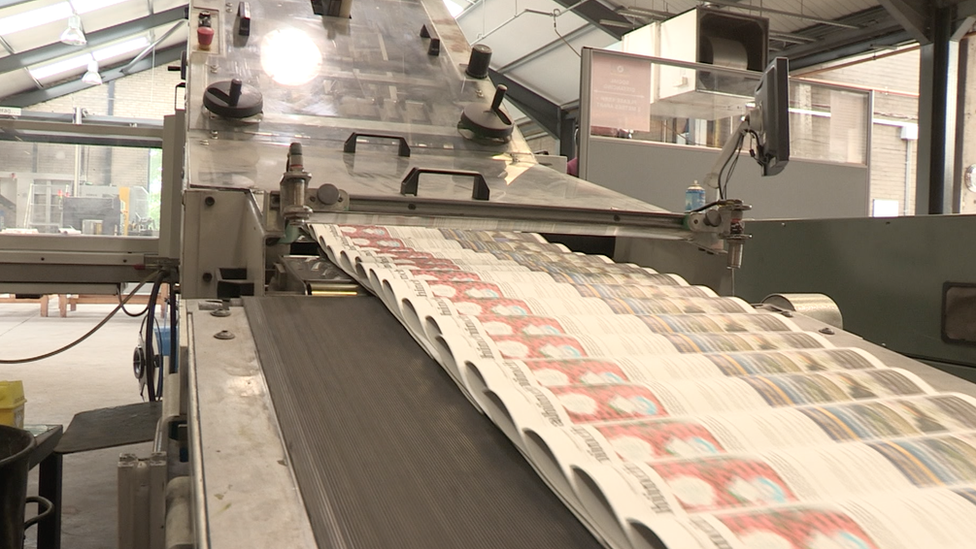
The Mourne Observer's editor Stephen Patton said tapping into the archives has been a valuable source of content
He added that the archives have been a valuable source of content and he "hopes readers enjoy the trips down memory lane".
"Hopefully older readers will enjoy reminiscing and younger readers enjoy learning something new," he said.
'Abnormal times'
Dessie Blackadder, editor of the Ballymena Guardian, said "it's a different ball game" when it comes to reporting during a pandemic.
"We don't have the courts, the councils are very much working on Zoom, and an awful lot of newspapers have actually gone back to their old archives and gone down the nostalgia route," he said.
With staff being furloughed, many papers have had to adapt to operating on "maybe two people rather than the usual staff".
"You're not delivering the product that you would be delivering in normal times.
"These are abnormal times so you take a hit and that has to be accepted but with the aim of coming back after the Covid-19 crisis."

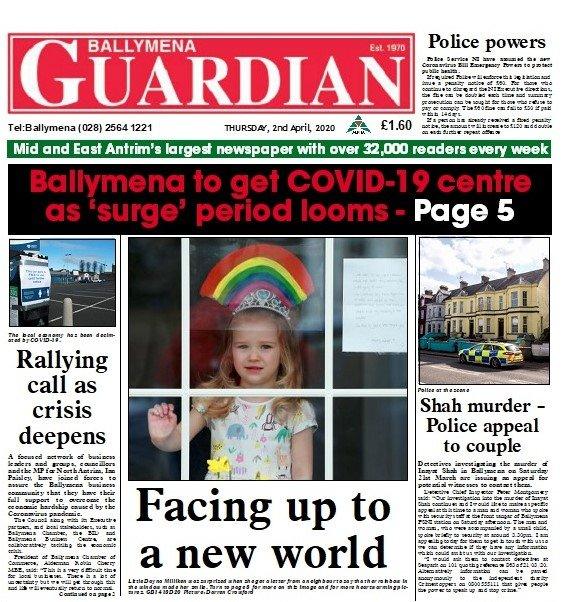
Dessie Blackadder, editor of the Ballymena Guardian, said newspapers bring 'a certain degree of normality'

He said that local people have continued to buy the paper "for a certain degree of normality".
"To get the print publication, put it on the table, have a cup of coffee and look through it, I think it will bring a degree of comfort to people," he said.
Tributes offering solace
Since March, many family members have not been allowed to attend funerals and wakes for loved ones who have died, following government advice on social distancing.
Ciaran O'Neill, managing editor of the Derry News, said that obituaries in the paper have offered some solace to the families of loved ones who passed away.

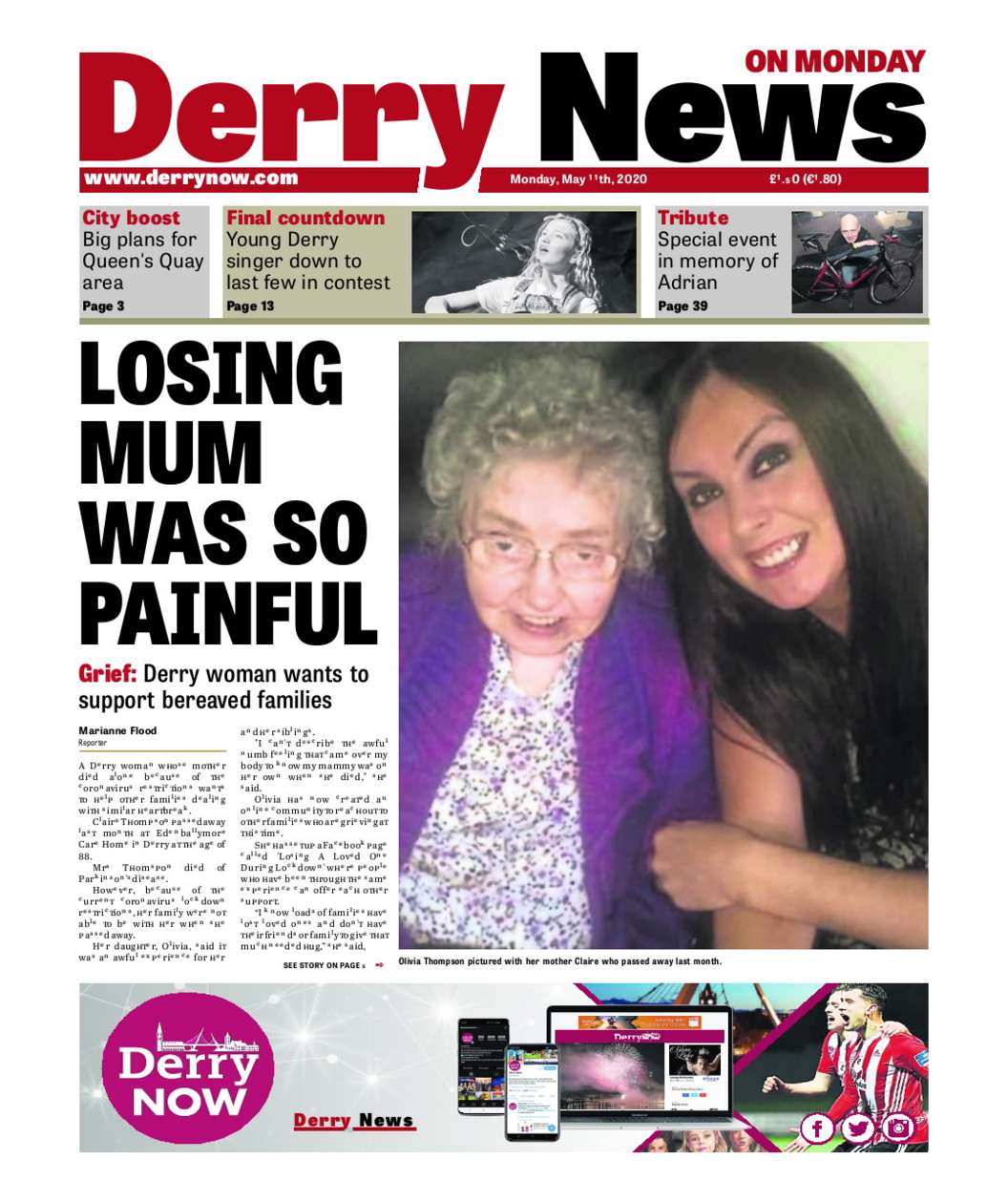
Tributes to people who died during the pandemic have "given a bit of solace to the families" who couldn't attend their funerals

The Derry News published a tribute piece to a local woman who died during the pandemic and her daughter felt "it was almost like a wake to the family".
"The local paper has been a voice to highlight those stories and I think people responded to that because the so-called normal news isn't happening so much," Mr O'Neill said.
'It backed us into a corner'
The Ulster Herald, based in Omagh, publishes four newspapers per week.
Nigel McDonagh, editor of the paper, said that when the full extent of the lockdown became apparent "decisions had to be made very, very quickly".
"It backed us into a corner and we had to be creative very quickly and that's what we did," he said.
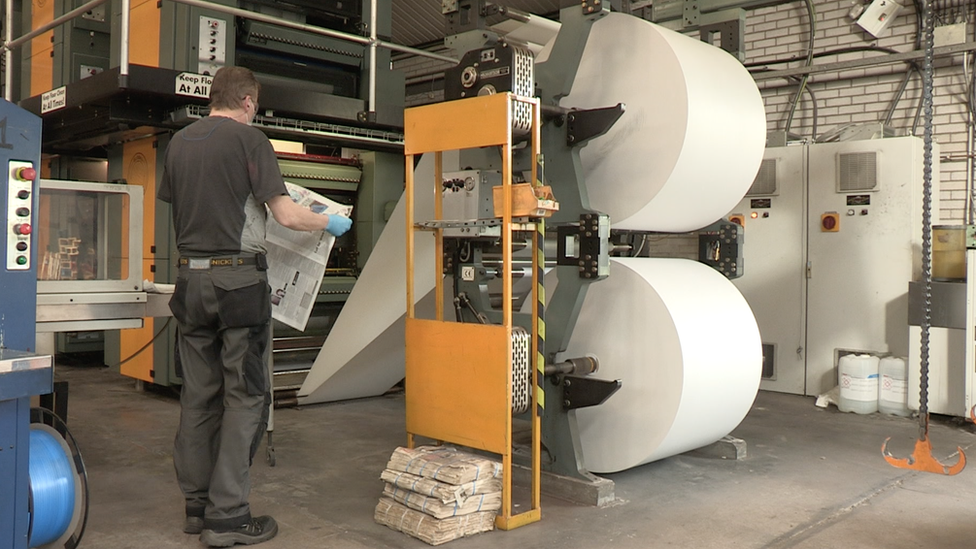
Many newspapers have continued printing despite pressures on sales
"We've enhanced our archive sections because people do enjoy that, the old photographs, the old stories from 25 or 75 years ago."
He added that lockdown measures have accelerated the move towards online reading and has enabled reporters to put more thought into their approach in developing a digital strategy for the future.
'Not just a statistic'
Mr McDonagh said that the paper had not shied away from covering the difficult stories of people who have lost their lives and their jobs.
"We've had four or five deaths of local people to coronavirus which the reporters told in an extremely sensitive manner," he said.
"From the families' point of view, it's a way to pay tribute to their loved ones so they're not just part of the statistics, it's the human part of the story that's being told."

With community events cancelled, some newspapers worried about how they could fill their pages
The Ulster Gazette has been around for 175 years and its editor, Michael Scott, said that despite fearing the worst, he didn't want the virus to beat them.
"We're creating entirely new content and new ways of engaging our readers and hopefully entertaining them as well," he said.
He said there's been an upsurge in the number of obituaries coming in but "it's an important part of what we do".
"They're a reflection of how that person is viewed in the community and it's good for us to share in that family's memories," he said.
For people shielding, newspapers may be their only link to what is happening in the community.
"We have been there for so long and we do tend to be part of the family, we're part of people's weeks," he said.
"It's down to those people getting their hands on the paper that we are still going, I can't thank them enough."
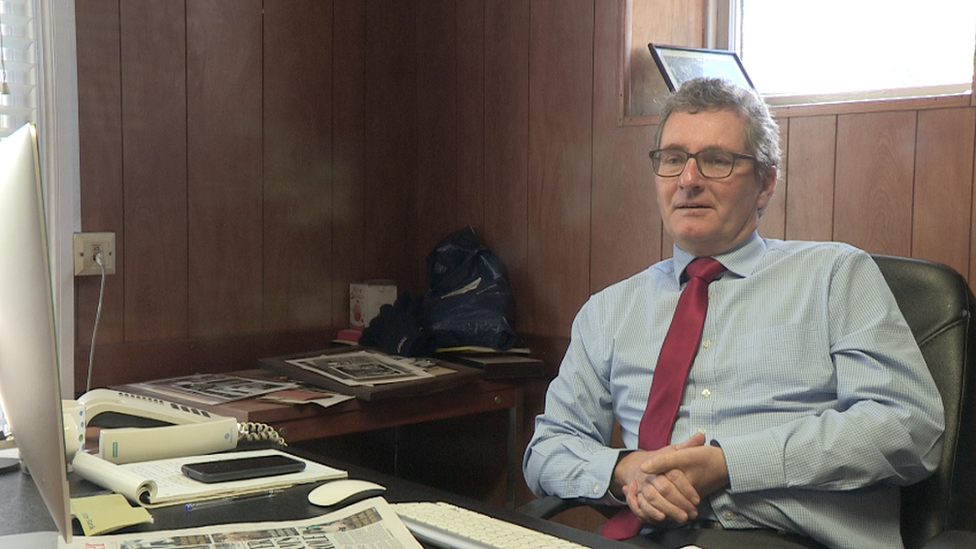
Marcus Crichton, editor of the Down Recorder said they printed through the Famine and the tradition wasn't going to stop now
The Down Recorder, based in Downpatrick, began printing in 1836 and has continued publishing throughout the pandemic.
Its editor, Marcus Crichton, said it has been down to the staff that the newspaper has kept printing through "one of the toughest times" in its history.
"We've kept going through two World Wars, the Famine, the Troubles, and we've never stopped," he said.
"It's a tradition we like to maintain. We have maintained it but it has been tough."
- Published22 April 2020

- Published29 March 2020
